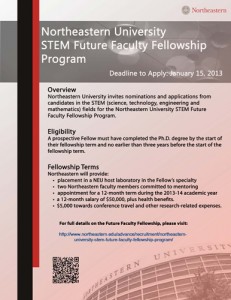Two members of the Society of Women Engineers (SWE) section at Michigan Tech, Kaitlyn Bunker and Alicia Walby, have been elected to regional and national positions within the organization.
Bunker, an electrical engineering PhD student, is the new collegiate director of SWE and sits on its national board of directors. The collegiate director is the only student who sits on the board, and Bunker is responsible for giving the collegiate members a voice. “I’ll be the first graduate student in the position in quite a while. I also come from a smaller, but really active section, so I can bring a new perspective,” she said.
Bunker was the president of the Michigan Tech section for two years and served on a national-level committee focused on leadership coaching for SWE sections.
Bunker is enthusiastic about developing her leadership skills as SWE collegiate director. “I’m most excited about the connections and new people that I’ll meet from around the country. I’ll also be able to help guide the society forward as it develops its new strategic plan. This is a great opportunity for me to give back to SWE because I’ve gained so much from being a part of it.”
Walby, a fifth-year mechanical engineering major, was elected one of the new regional collegiate representatives (RCRs) for Region H, which encompasses Illinois, Indiana, Iowa, Michigan, Minnesota, North Dakota, South Dakota and Wisconsin. It is the largest SWE region, with more than 2,800 members. She was inspired to serve as an RCR during her tenure as communications editor for Region H last year. In her new position, Walby now maintains the flow of information between the sections in her region and the national organization. Walby also works with sections that are not in good standing to help them get back on their feet.
Walby is looking forward to working with the presidents of the collegiate SWE sections in Region H. “There are so many great female leaders, and it’s awesome to see what kinds of things they’re doing with their sections. It’s motivation for me to keep pushing them to make their sections even better.”
Like Bunker, Walby has benefited from her involvement in SWE. “I’ve gotten to know so many people from around the nation from attending conferences. It’s great to go to a regional conference be able to say ‘Hey, how have you been?’ to some of the professional members,” she said.
Gretchen Hein, one of the SWE advisors, says that Bunker and Walby’s positions will benefit the SWE section at Michigan Tech. “This will increase our visibility, both at the regional and national levels over time. I also hope that their involvement will inspire other members to apply for regional and national positions as well.”
SWE focuses on the advancement of women in engineering, but the section at Michigan Tech is open to both men and women of all majors. The section meets every other Wednesday at 6 p.m. in Chemical Sciences and Engineering 101. More information about the SWE section at Michigan Tech is available at Michigan Tech SWE. To learn more about the national society visit Society of Women Engineers.
by Travis Gendron, student writer
Published in Tech Today
